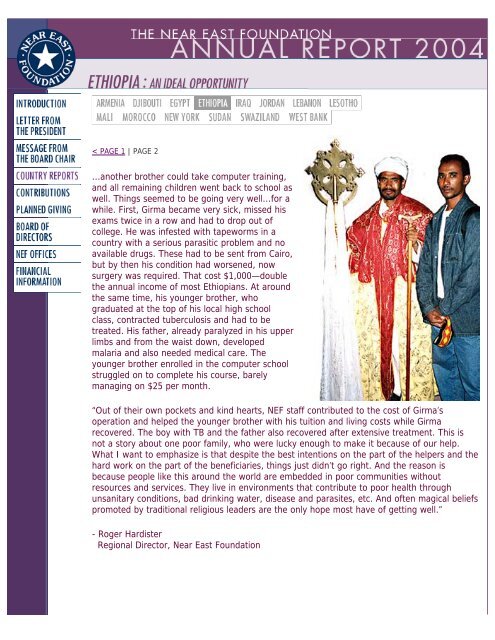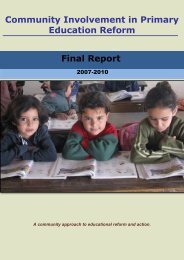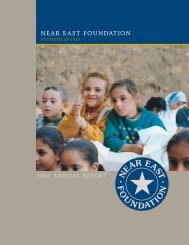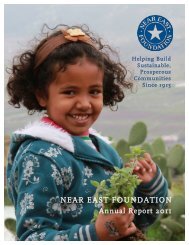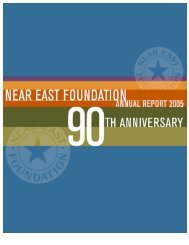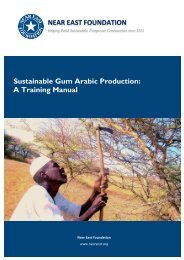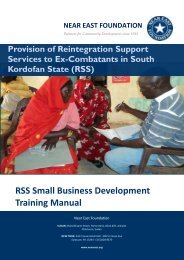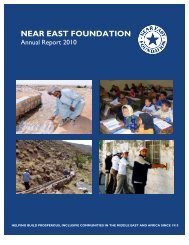NEF 2004 Annual Report - Near East Foundation
NEF 2004 Annual Report - Near East Foundation
NEF 2004 Annual Report - Near East Foundation
Create successful ePaper yourself
Turn your PDF publications into a flip-book with our unique Google optimized e-Paper software.
PAGE 1 | PAGE 2<br />
...another brother could take computer training,<br />
and all remaining children went back to school as<br />
well. Things seemed to be going very well...for a<br />
while. First, Girma became very sick, missed his<br />
exams twice in a row and had to drop out of<br />
college. He was infested with tapeworms in a<br />
country with a serious parasitic problem and no<br />
available drugs. These had to be sent from Cairo,<br />
but by then his condition had worsened, now<br />
surgery was required. That cost $1,000—double<br />
the annual income of most Ethiopians. At around<br />
the same time, his younger brother, who<br />
graduated at the top of his local high school<br />
class, contracted tuberculosis and had to be<br />
treated. His father, already paralyzed in his upper<br />
limbs and from the waist down, developed<br />
malaria and also needed medical care. The<br />
younger brother enrolled in the computer school<br />
struggled on to complete his course, barely<br />
managing on $25 per month.<br />
“Out of their own pockets and kind hearts, <strong>NEF</strong> staff contributed to the cost of Girma’s<br />
operation and helped the younger brother with his tuition and living costs while Girma<br />
recovered. The boy with TB and the father also recovered after extensive treatment. This is<br />
not a story about one poor family, who were lucky enough to make it because of our help.<br />
What I want to emphasize is that despite the best intentions on the part of the helpers and the<br />
hard work on the part of the beneficiaries, things just didn’t go right. And the reason is<br />
because people like this around the world are embedded in poor communities without<br />
resources and services. They live in environments that contribute to poor health through<br />
unsanitary conditions, bad drinking water, disease and parasites, etc. And often magical beliefs<br />
promoted by traditional religious leaders are the only hope most have of getting well.”<br />
- Roger Hardister<br />
Regional Director, <strong>Near</strong> <strong>East</strong> <strong>Foundation</strong>


